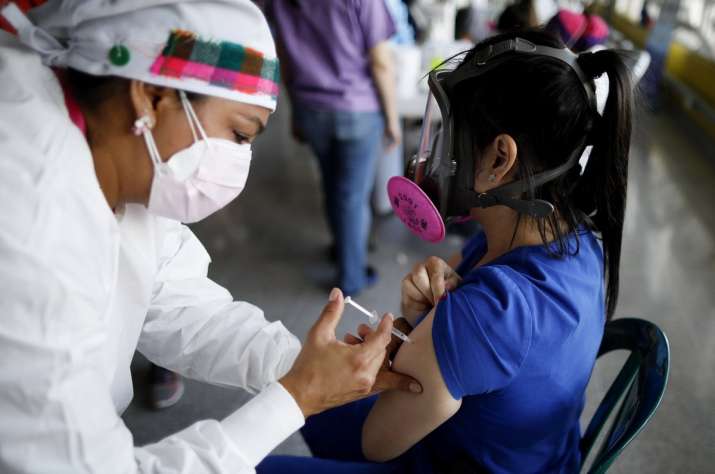
Single dose of Sputnik V COVID-19 vaccine triggers strong antibody response: Study
A single dose of the Sputnik V vaccine may be enough to elicit a strong antibody response against SARS-CoV-2, the virus that causes COVID-19 in people already infected, according to a study. Previous studies have found that two doses of Sputnik V, a vector vaccine produced using a combination of two adenoviruses, resulted in a 92 percent efficacy against COVID-19 infection.
Adenoviruses are common viruses that cause a variety of illness with cold-like symptoms such as fever and sore throat.
The new study, published Tuesday in the journal Cell Reports Medicine, examined whether a single dose would yield greater public health benefits than two doses by providing protection to a larger population more quickly.
Senior author Andrea Gamarnik of the Fundación Institut Leloir-Coniquet in Buenos Aires said, “Due to limited vaccine supplies and uneven vaccine distribution in many regions of the world, health authorities need data on the immune response to vaccines to optimize vaccination strategies. There is an urgent need.” , Argentina.
“The peer-reviewed data we present provides information to guide public health decisions in light of the current global health emergency,” Gamarnik said.
The researchers noted that evidence from other vaccines provides support for the one-shot approach.
For example, the AstraZeneca vaccine shows 76 percent efficacy after a single dose, and Moderna and Pfizer vaccines can generate substantial immunity in already infected individuals after a single dose, with no clear benefit of additional doses.
In the latest study, researchers compared the effects of one and two shots of Sputnik V on SARS-CoV-2-specific antibody responses in 289 healthcare workers in Argentina.
Three weeks after the second dose, all volunteers with no prior infection produced virus-specific immunoglobulin G (IgG) antibodies – the most common type of antibody found in the blood.
However, even within three weeks of receiving the first dose, 94 percent of these participants developed IgG antibodies against the virus, and 90 percent showed evidence of neutralizing antibodies, which affect the ability of the virus to infect cells. intervene.
The research further demonstrated that IgG and neutralizing antibody levels in previously infected participants were significantly higher after a single dose than those who had no history of infection.
A second dose did not increase the production of neutralizing antibodies in previously infected volunteers.
“This highlights the robust response of previously infected individuals to vaccination, suggesting that naturally acquired immunity can be substantially enhanced by a single dose, in line with recent studies using mRNA vaccines, Gamarnik said.
The researchers noted that further studies are needed to evaluate the duration of the immune response and to assess how antibody levels relate to the vaccine’s protection against COVID-19.
The higher antibody levels after a single dose in nave participants suggest a benefit of delaying administration of the second dose to increase the number of people vaccinated, he said.
“Evidence based on quantitative information will guide vaccine deployment strategies in the face of worldwide vaccine supply restrictions,” Gamarnik said.
.